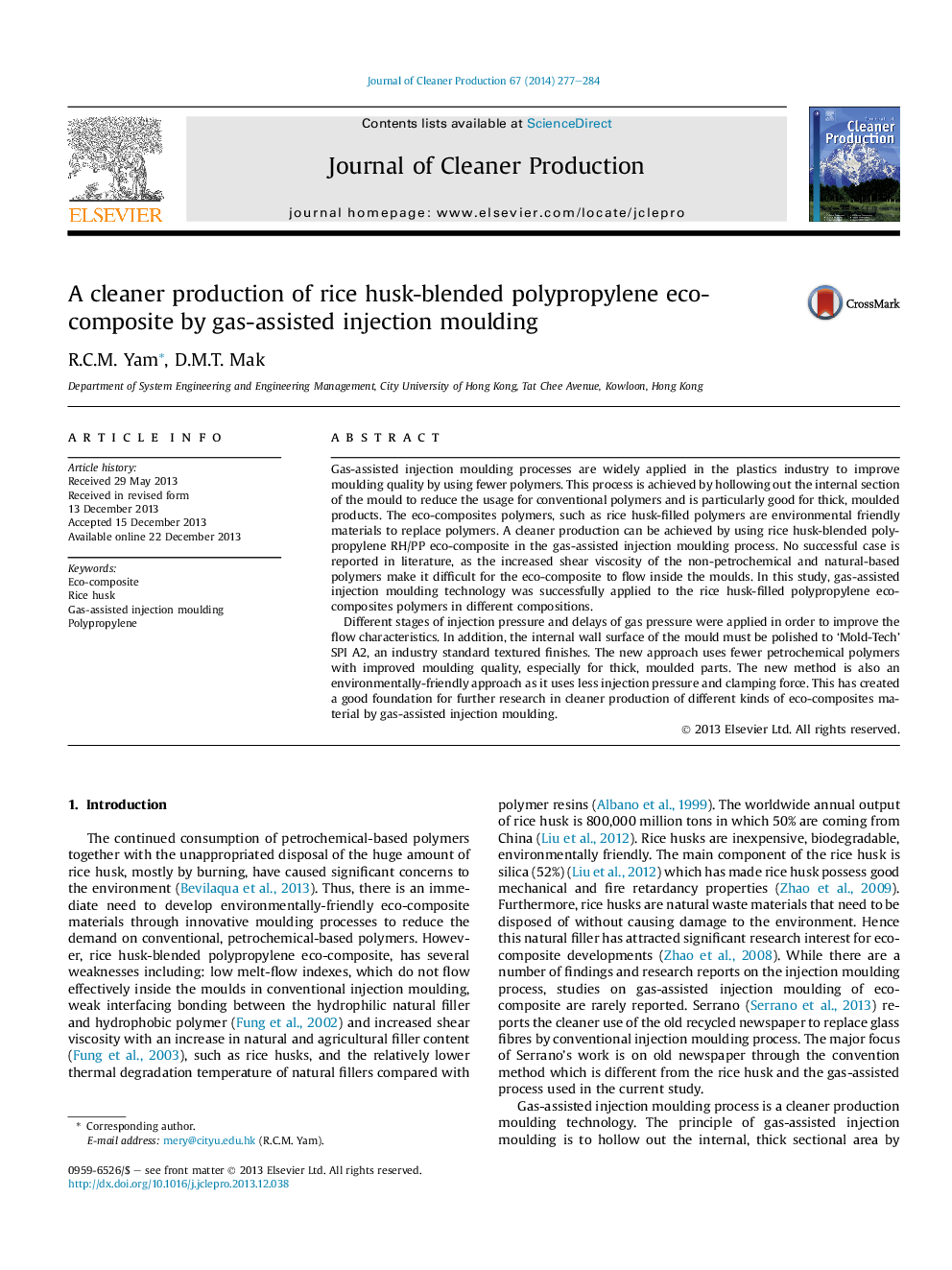| Article ID | Journal | Published Year | Pages | File Type |
|---|---|---|---|---|
| 1744962 | Journal of Cleaner Production | 2014 | 8 Pages |
Gas-assisted injection moulding processes are widely applied in the plastics industry to improve moulding quality by using fewer polymers. This process is achieved by hollowing out the internal section of the mould to reduce the usage for conventional polymers and is particularly good for thick, moulded products. The eco-composites polymers, such as rice husk-filled polymers are environmental friendly materials to replace polymers. A cleaner production can be achieved by using rice husk-blended polypropylene RH/PP eco-composite in the gas-assisted injection moulding process. No successful case is reported in literature, as the increased shear viscosity of the non-petrochemical and natural-based polymers make it difficult for the eco-composite to flow inside the moulds. In this study, gas-assisted injection moulding technology was successfully applied to the rice husk-filled polypropylene eco-composites polymers in different compositions.Different stages of injection pressure and delays of gas pressure were applied in order to improve the flow characteristics. In addition, the internal wall surface of the mould must be polished to ‘Mold-Tech’ SPI A2, an industry standard textured finishes. The new approach uses fewer petrochemical polymers with improved moulding quality, especially for thick, moulded parts. The new method is also an environmentally-friendly approach as it uses less injection pressure and clamping force. This has created a good foundation for further research in cleaner production of different kinds of eco-composites material by gas-assisted injection moulding.
